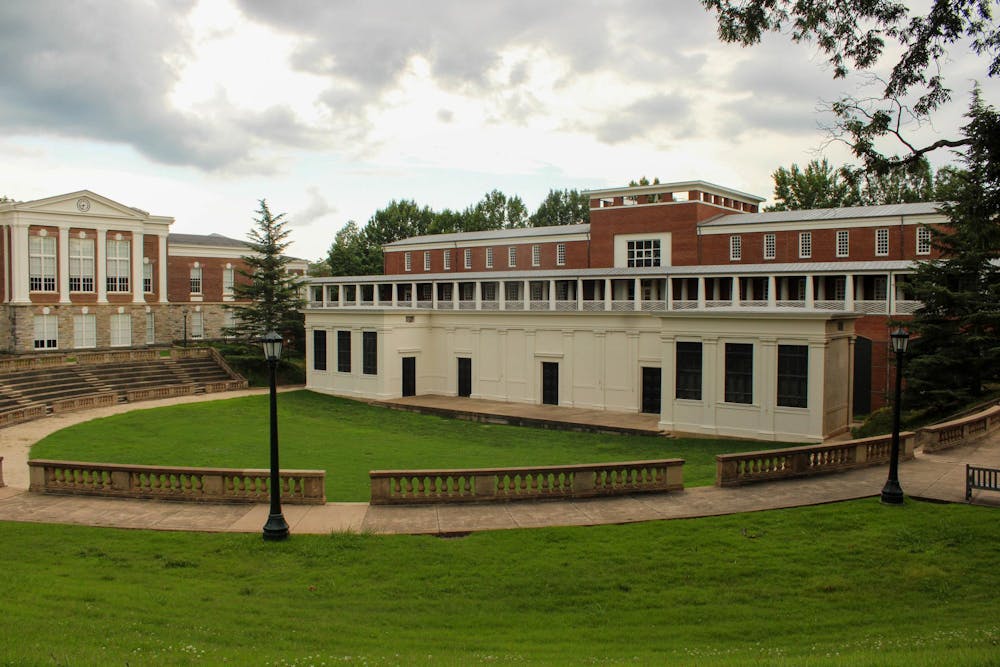The University, once a model of liberal education, is now increasingly prioritizing professional degrees — a shift that reflects broader trends nationwide. As a result, science, technology, engineering and math graduates are gaining on their liberal arts counterparts, both nationally and locally. While the natural sciences have always been core for the curriculum, disciplines like philosophy and languages flourished alongside them, creating a distinctive academic balance. Today, that balance is at risk. Ignoring the decline of the liberal arts risks betraying the University’s spirit which prioritizes exploring what it means to be human in the context of the world around us. With an eye to the future, the University must restore its vigor for the liberal arts and find them a place central to the academic and cultural life on Grounds.
The decline of liberal arts programs is backed by clear data rather than mere anecdotes. Nationwide, enrollment in majors such as English, history and philosophy has steadily decreased. Many colleges are now cutting liberal arts budgets and even eliminating entire departments. Meanwhile, STEM enrollments have exceeded previous estimates, driven by the promise of marketable skills, higher pay and greater job expectations. As economic uncertainty grows for the next generation, students and families expect technical degrees to deliver reliable career prospects. And so, graduates are left with a perfect storm of variables that demotes a liberal arts education to being a crumbling asset with a depreciating value.
Moreover, the University has also added fuel to the fire in its handling of the crisis. Over the past decade, the University has seen an eight percentage point drop in humanities enrollment, contrasting with a corresponding increase in STEM and business-oriented majors. But instead of attempting to remedy this with support for humanities programs, the University accelerated its professional offerings — establishing the School of Data Science, embedding computer science into its arts curriculum and investing heavily into the Mcintire School of Commerce’s infrastructure. These moves reflect a growing preference to prioritize programs tied to job markets and external funding, while the liberal arts are left to quietly shrink.
These cuts are not just symbolic. Departmental budgets, staff and course offerings in the humanities will be tightened, while curricular innovation moves elsewhere. This shift tilts the University’s identity away from its liberal arts foundations.
At its heart, this shift stems from a misunderstanding of the breadth and purpose of the liberal arts. These disciplines train the mind. While they do not lead to an obvious career track, these fields provide a plethora of valuable skills necessary for work. Through reading, writing and exposure to competing worldviews, students learn to compose evidence-based arguments and challenge assumptions. In doing so, they empower their communities to approach ambiguous challenges from multiple angles and synthesize knowledge across multiple domains. While the sciences have advanced our material well-being, ideals like democracy and the improvements in our public welfare are tied to ideas within the arts.
It is precisely this dual value that — both societal and practical — that the University must recognize and champion. A common criticism of the liberal arts is that they fail to pay off. That concern makes sense because students expect their education to lead to stable employment. However, framing the humanities and employability as opposites is a false dichotomy. Employers consistently rank communication, problem solving and critical thinking as top hiring qualities. These degrees also offer necessary perspectives on ethics and human behavior that safeguard stakeholder interests. If the University is committed to preparing students not just for their first job, but for a lifetime of leadership, it must realize that the liberal arts are not an obstacle to success — they are its foundation.
Reversing this trend cannot wait for changes at the national level — the University must act now. To its credit, the University has maintained extensive general education requirements that expose students to the humanities. But as enrollment numbers have shown, this exposure alone is not translating into sustained engagement. The University must go further by actively investing in its liberal arts departments, expanding access to engaging, resourceful courses and foregrounding these disciplines in its recruitment and messaging. Students need to see these fields as not only intellectually rich, but also as relevant, rigorous and professionally indispensable. A passive approach will not suffice.
The University now faces a choice between upholding a legacy of true scholarship founded in liberal arts or succumbing to unchecked careerism. This crossroads should call us to remember our founding principles. Thomas Jefferson, whose vision shaped the University, exemplified the value of both scientific and humanistic learning. The very architecture of the University reflects his fusion of engineering precision with Enlightenment philosophy. He imagined a university that would nurture not just technical expertise, but civic virtue and moral imagination. Reviving the liberal arts is more than an act of preservation — it is an urgent reaffirmation of our founding mission to cultivate thoughtful, innovative citizens prepared to shape the future.
Muhammad Ali Rashid is an opinion senior associate who writes about student self governance for The Cavalier Daily. He can be reached at opinion@cavalierdaily.com.
The opinions expressed in this column are not necessarily those of The Cavalier Daily. Columns represent the views of the authors alone.







